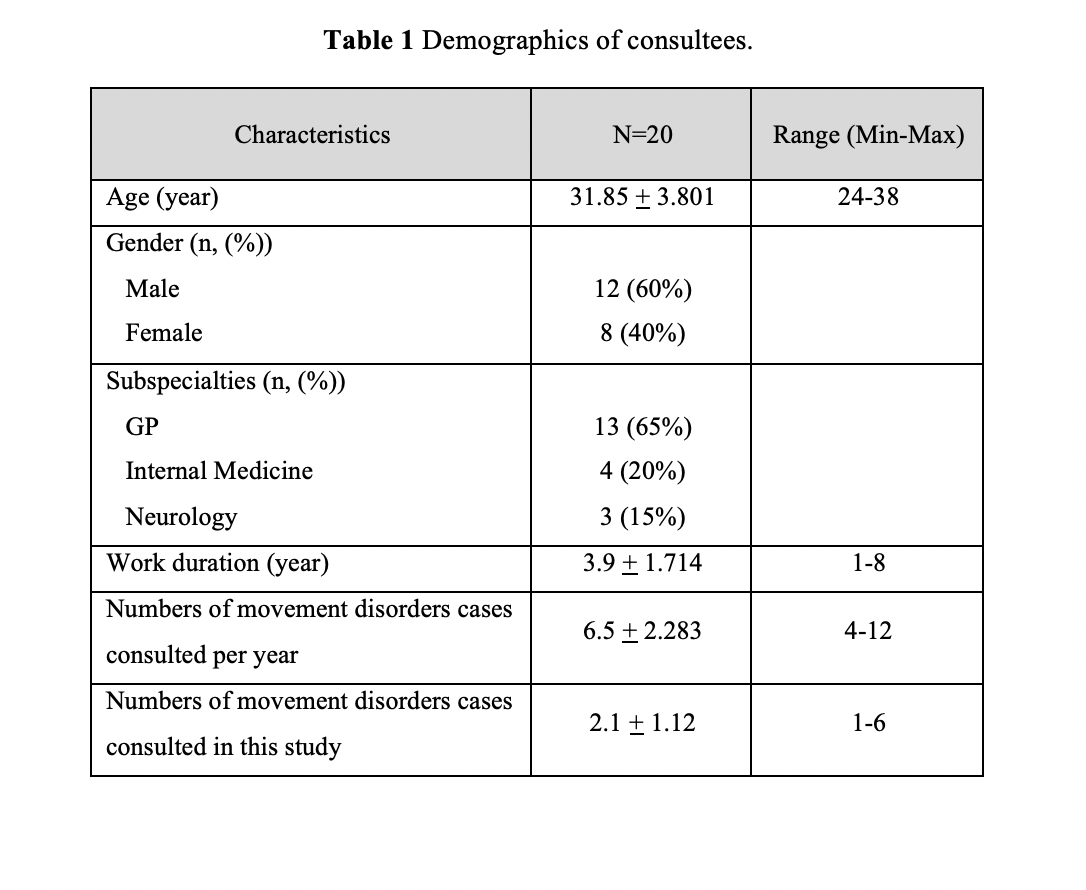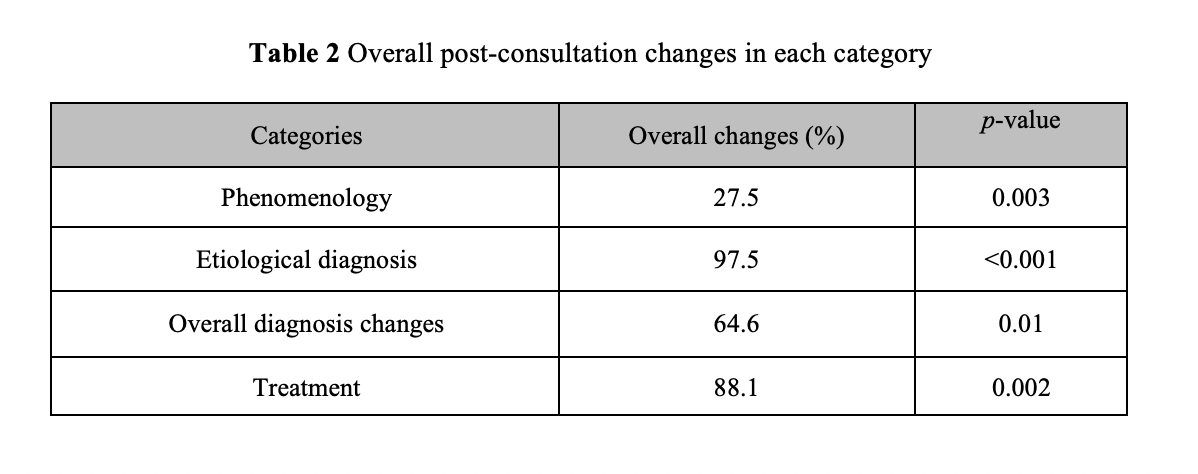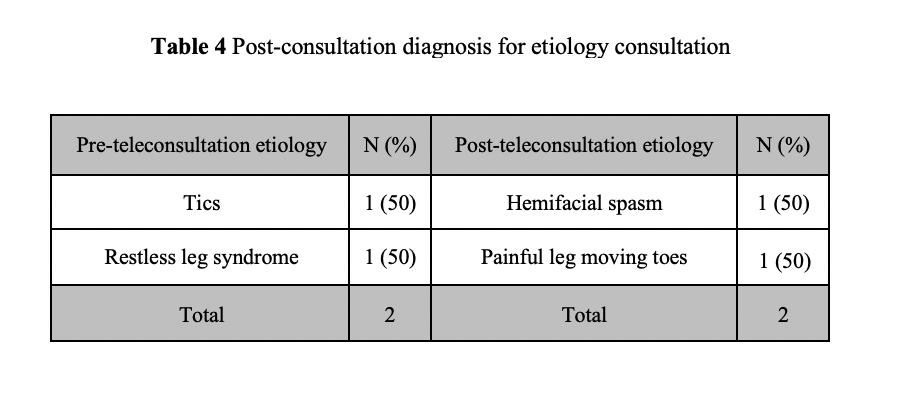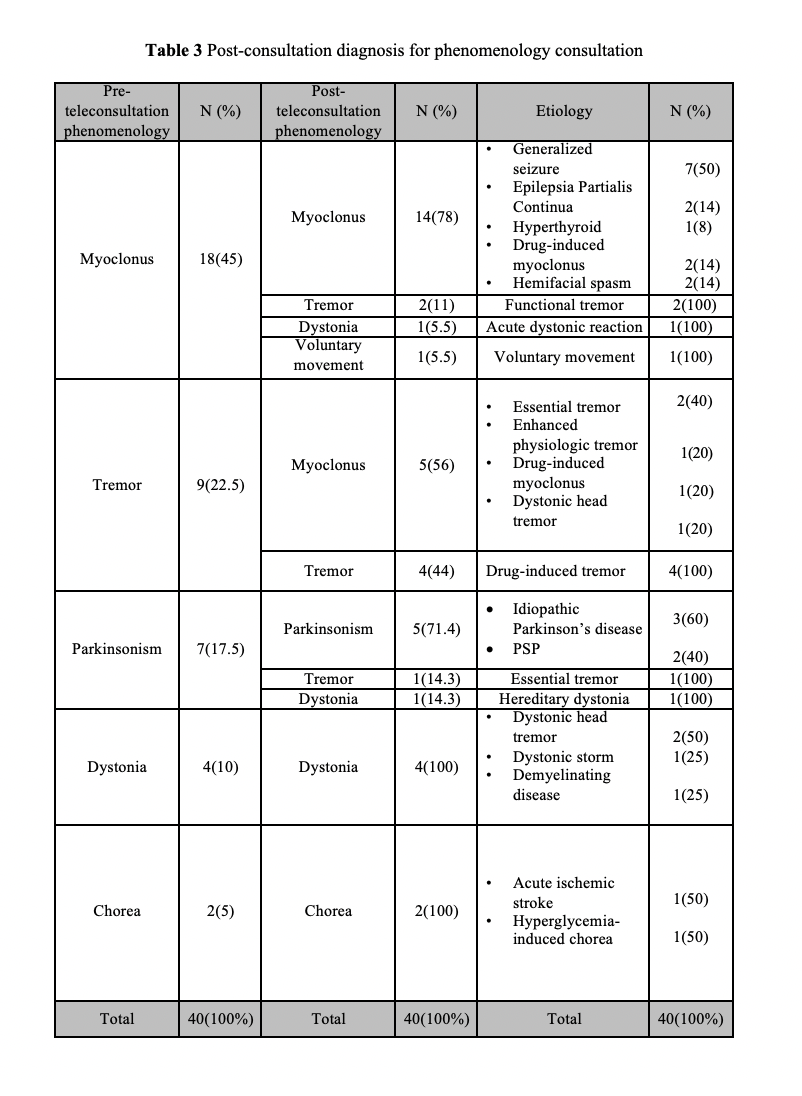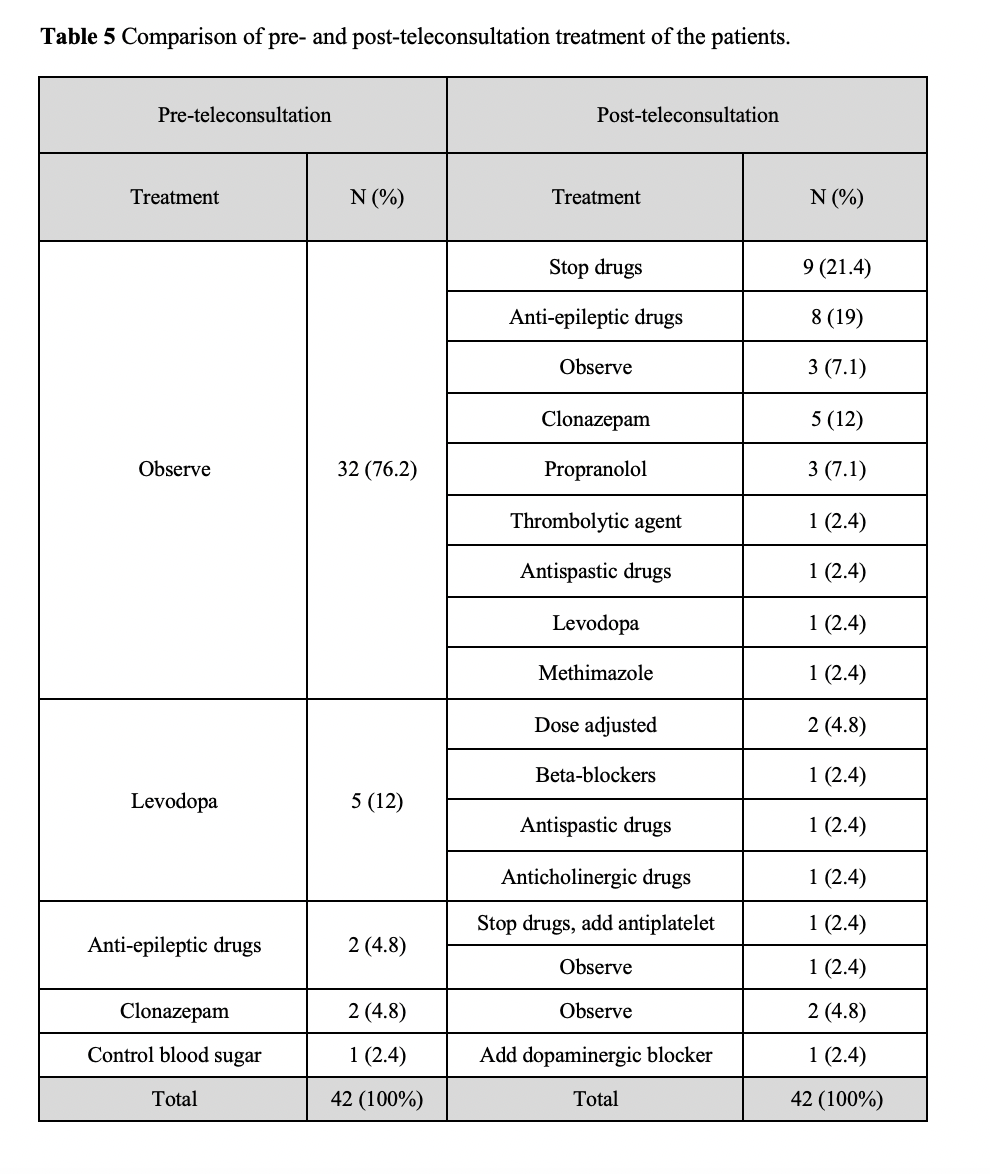Category: Technology
Objective: To evaluate the efficacy of movement disorders teleconsultation in Thailand.
Background: Though movement disorders are common, there are relatively small numbers of movement disorders specialists. There are fewer than 20 movement disorders specialists in Thailand. Moreover, 61.7% of the general hospitals are in shortage of neurologists. To address this inequality of access to specialty care, teleconsultation is often used, but no study has been done of its use for movement disorders in Thailand.
Method: All patients and consultee physicians gave informed consent. Then, teleconsultations were undertaken between movement disorders specialists and 13 general practitioners, 4 internists and 3 neurologists (Table 1), via a secure application. All clinical information, including patients’ histories, relevant rating scales, and video clips were sent to the consultant. After reviewing the materials, the consultant would either promptly suggest diagnosis and management via text message/audio call/video call, ask for more information or do real-time video consultation. Changes in diagnosis, investigation, and treatment were recorded. If the diagnosis or treatment was uncertain, discussion in conference of movement disorders specialists would be made.
Results: Forty-two patients were consulted. The most common phenomenology consulted was myoclonus (45%), followed by tremor (22.5%). Post-teleconsultation, 64.6% of the overall diagnosis significantly changed (p = 0.01). Local physicians could not define some phenomenologies and most of the etiologies (Table 2-5). Tremor was changed to myoclonus in 67% of the cases, which implied that local physicians were confused between tremor and myoclonus (Table 3). Thus, knowledge gap in this area should be fulfilled. Moreover, 88.1% of the treatments significantly changed (p = 0.002), 7.1% remained in observation, and 4.8% doses were altered (Table 2,5). All the suggested treatments were followed by consultee and 90% of the patients improved.
Conclusion: The data showed that not only numbers but also knowledge gap between local physicians and movement disorders specialists existed. Due to high impact of diagnostic and treatment changes, teleconsultation for movement disorders in Thailand is effective, convenient and satisfactory. It should be implemented to increase patient’s access to specialty care and, thereby, improve their treatment and quality of life.
To cite this abstract in AMA style:
W. Phuenpathom, P. Jagota, R. Bhidayasiri. The Efficacy of Teleconsultation for Management of Movement Disorders in Thailand [abstract]. Mov Disord. 2020; 35 (suppl 1). https://www.mdsabstracts.org/abstract/the-efficacy-of-teleconsultation-for-management-of-movement-disorders-in-thailand/. Accessed November 14, 2025.« Back to MDS Virtual Congress 2020
MDS Abstracts - https://www.mdsabstracts.org/abstract/the-efficacy-of-teleconsultation-for-management-of-movement-disorders-in-thailand/

